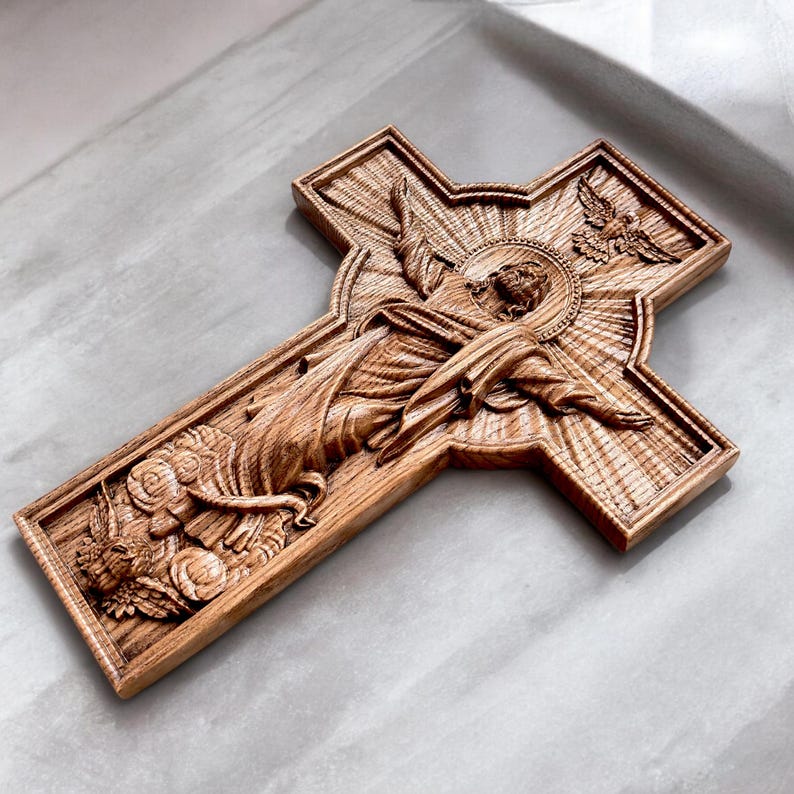News
The Rising Demand for Custom Handmade Wooden Crosses: The Perfect Christian Home Decoration
In today’s fast-paced, mass-produced world, there is a noticeable shift in consumer preferences toward handmade and artisanal products. This trend is especially evident in the realm of religious decor, where authenticity, personalization, and high-quality craftsmanship are highly valued. One standout example is the custom handmade wooden cross, which has become a sought-after item for Christian households and places of worship. This growing demand for bespoke religious artifacts is not just a passing trend—it’s part of a broader movement toward more mindful and meaningful consumption.
1. The Shift Towards Unique and Personalized Religious Decor
A key reason behind the rise of custom handmade wooden crosses is the desire for uniqueness among consumers. In a world dominated by mass-produced items, owning a one-of-a-kind wooden cross provides a sense of individuality and spiritual significance. These custom pieces allow individuals to express their personal faith and values, making them more special and meaningful. Consumers appreciate the opportunity to participate in the design process, from selecting the type of wood to customizing engravings and finishes.
2. Quality Over Quantity in Religious Artifacts
Another driving factor is the preference for quality over quantity. Handmade wooden crosses are crafted with meticulous attention to detail, using high-quality materials and traditional woodworking techniques. Unlike factory-made items, which prioritize speed and efficiency, these crosses reflect the artisan’s skill and dedication to their craft. This results in durable, long-lasting pieces that can be cherished for generations. For many, investing in a handmade wooden cross means supporting craftsmanship that prioritizes excellence over mass production.
3. The Ethical Appeal of Handmade Religious Items
Beyond quality and personalization, many consumers are drawn to handmade wooden crosses because of their ethical appeal. Increasingly, people are conscious of the impact their purchases have on the environment and society. Handmade crosses are often produced using sustainable, eco-friendly methods, and buying from small artisans helps support local economies. For those looking to reduce their carbon footprint, choosing a handmade wooden cross aligns with values of sustainability and fair trade.
4. The Artisan Renaissance in Religious Craftsmanship
Artisans and craftsmen are experiencing a renaissance in today’s market, particularly within the niche of religious decor. The resurgence of interest in handmade wooden crosses has opened up new opportunities for artisans to thrive both locally and globally. With the rise of online marketplaces and social media platforms, artisans can now reach a wider audience than ever before. Many consumers enjoy connecting with the creators of their crosses, learning about the craftsmanship and the story behind each piece. This connection fosters a deeper appreciation for the artistry involved and encourages continued support for handmade religious goods.
5. Customization: The Future of Religious Decor
Customization is at the heart of the handmade wooden cross trend. Today’s consumers expect brands and artisans to offer personalized options that cater to their specific tastes and spiritual needs. Whether it’s engraving a family name, adding symbolic motifs, or selecting a particular type of wood, customization adds a layer of personal involvement that makes the final product feel truly special. As demand for personalized religious items continues to grow, artisans are finding new and creative ways to offer tailored services, ensuring that each cross is as unique as its owner.
6. Supporting Local and Global Artisans in Religious Craftsmanship
Another aspect of the handmade movement is the opportunity to support both local and global artisans. Many consumers prefer to buy from small, independent creators, knowing that their purchases directly benefit the artisans and their communities. This support often extends to craftsmen in developing countries, where handcrafted wooden crosses are a vital source of income. By purchasing handmade crosses, consumers contribute to the preservation of traditional woodworking techniques and help sustain communities around the world.
7. The Role of Technology in the Handmade Religious Market
While handmade wooden crosses are rooted in tradition, technology has played a significant role in their modern resurgence. Online platforms like Etsy and Shopify have made it easier for artisans to showcase and sell their work to a global audience. Social media also allows creators to connect directly with consumers, share their crafting processes, and build a loyal customer base. Through technology, the handmade religious market is expanding, making it possible for more people to access custom crosses that were once only available locally.
8. Conclusion
The rising demand for custom handmade wooden crosses reflects a shift in consumer values toward authenticity, sustainability, and personalization. As individuals seek to reconnect with meaningful, high-quality religious artifacts, artisans are rising to meet this demand with beautifully crafted, unique crosses. This trend is likely to continue as more consumers embrace the value of supporting local craftsmanship and creating deeper connections with the religious items they purchase. The future of religious decor is moving toward customization and craftsmanship, where handmade wooden crosses take center stage.

